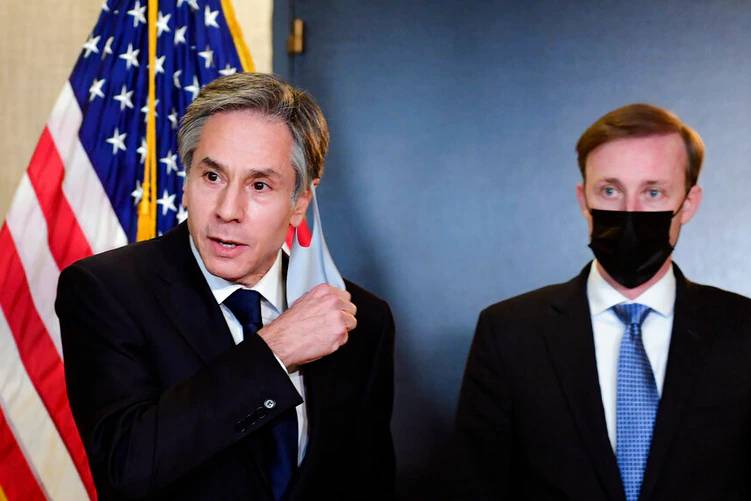After two days of tense talks with his Chinese counterpart, U.S. Secretary of State Antony Blinken said that despite their differences, there are places where the interests of the two nations intersect. On Saturday, China acknowledged as much, a sign of possible progress.
In a dispatch from Alaska, China's official Xinhua News Agency said China and the U.S. would set up a working group on climate change.
Xinhua did not give any details about the climate working group but did say the U.S. and China discussed changing COVID-19 travel and visa policies and vaccinating each other’s diplomats. Both sides also agreed to discuss “diplomatic and consular missions" and journalists’ visas, Xinhua said.
Last July, then-Secretary of State Mike Pompeo ordered the Chinese Consulate in Houston, Texas, to shut down, citing the persistent problem of theft of U.S. intellectual property. China strenuously objected and later closed the U.S. Consulate in Chengdu.
The dispute over journalists began in February 2020. Eventually both countries expelled several of each other’s journalists and reduced the length of their visas to three months, although those stays are usually renewed.
A senior U.S. official, who spoke on condition of anonymity Saturday, said that while no formal agreements on new talks were reached, there were areas “in the normal course of our diplomatic engagements where we may be able to explore" mutual interests.
Prepared for confrontation
Blinken told reporters after the Alaska talks ended Friday night that U.S. diplomats "knew going in that there are a number of areas where we are fundamentally at odds, including China's actions in Xinjiang, with regard to Hong Kong, Tibet, increasingly Taiwan, as well as actions that it's taking in cyberspace."
"And it's no surprise that when we raise those issues clearly and directly, we got a defensive response,” he added.
"The U.S. side should not underestimate China's determination to safeguard national sovereignty, security and development interests," Foreign Minister Wang Yi told Chinese media after the meeting.
The Chinese delegation, headed by Communist Party foreign affairs chief Yang Jiechi and Foreign Minister Wang Yi, left the talks Friday without making a statement.
Blinken said that despite the difficulties, the two sides were also able to have a “very candid conversation” on topics where their interests intersect, including Iran, North Korea, Afghanistan and the climate.
(VOA)

